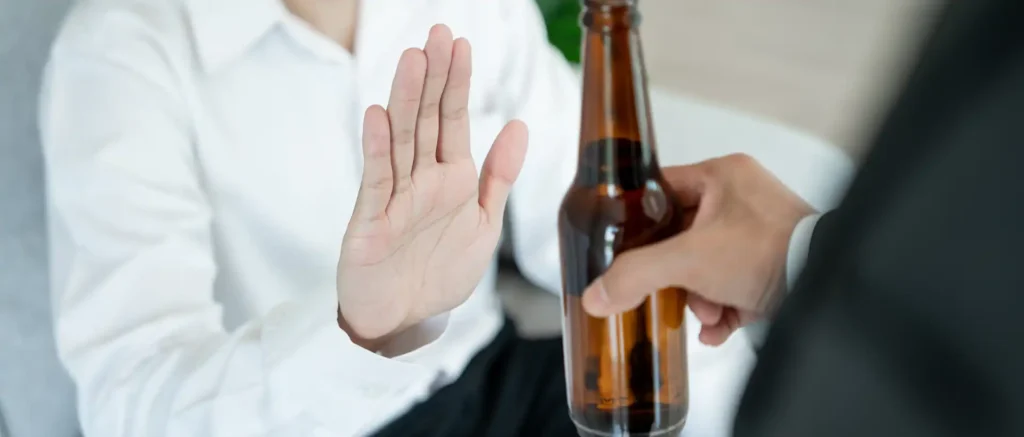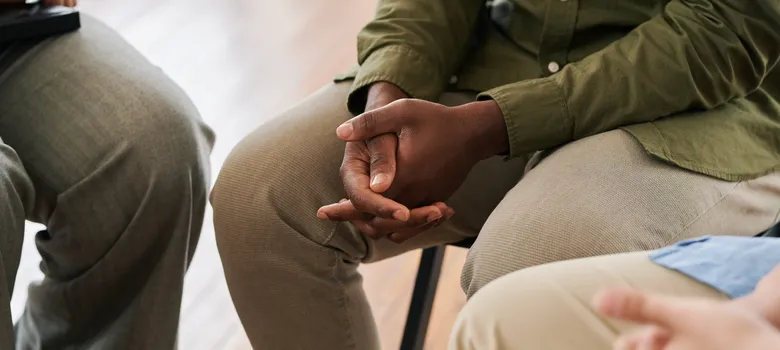Effects and How to Stop Binge Drinking

Binge drinking can cause serious harm to your health, relationships, and everyday functioning. Whether it occurs at parties or in isolation, it can be challenging to quit once it becomes a regular pattern. However, you can stop binge drinking by adopting targeted strategies and reshaping the way you relate to alcohol.
Learning how to stop binge drinking may seem overwhelming at first, but with practical tools and support, you can regain control over your drinking habits.
Understanding the Effects of Binge Drinking
Binge drinking involves consuming a significant amount of alcohol in a short time frame. It is linked to numerous health and social complications. Understanding the nature of binge drinking, why it occurs, and how to recognise it can empower you to make healthier decisions.
Definition and Health Risks
Binge drinking is commonly defined as drinking enough alcohol to raise your blood alcohol concentration (BAC) to 0.08% or higher within about two hours. For most men, this means five or more drinks in one sitting; for women, it’s four or more.
The consequences of binge drinking are substantial. Short-term effects may include blackouts, impaired judgement, and injuries. Long-term risks encompass liver disease, cardiovascular issues, and an increased likelihood of developing various types of cancer. Even a single episode can lead to alcohol poisoning or dangerous behaviour.
Causes and Triggers
Binge drinking is driven by multiple factors. Social settings, such as large gatherings or celebrations, often promote excessive alcohol consumption. Peer pressure and the desire to fit in are particularly influential among younger adults.
Many people also use alcohol to manage stress, emotional discomfort, or mental health concerns. A family history of alcoholism, easy access to alcohol, and cultural norms can all contribute. Additionally, feelings of boredom or curiosity, especially in the company of others who drink heavily, can trigger unhealthy drinking habits.
Signs and Symptoms
Recognising the signs of binge drinking is key. Common indicators include consuming alcohol rapidly, losing track of how much you drink, and being unable to stop once you start. Experiencing blackouts or memory lapses after drinking is a critical warning sign.
Other symptoms include engaging in risky behaviour like drink-driving or unsafe sex, missing responsibilities, and mood instability. Noticing these behaviours can prompt early intervention and support.
How to Stop Binge Drinking
To stop binge drinking, focus on achievable goals, identify triggers, form healthier routines, and establish a support network. These elements collectively support sustainable behavioural change.
Setting Achievable Goals
Creating realistic goals provides clarity and encouragement. Specify what you want to change, whether it’s cutting down your alcohol intake or avoiding certain drinking scenarios. Writing down your goals and reviewing them regularly reinforces accountability.
Use the SMART framework (Specific, Measurable, Achievable, Relevant, Time-bound) to structure your targets. For instance:
Not Specific: Drink less
SMART Goal: Limit myself to two drinks on Friday nights for one month
Tracking your progress with a journal or app can keep you on course. If you encounter setbacks, reassess and modify your goals, but persist. Celebrate small achievements to maintain motivation.
Recognising High-Risk Situations
Awareness of situations that trigger binge drinking is vital. These can include parties, work-related stress, or spending time with heavy-drinking peers.
Make a list of personal triggers and examine patterns. For example:
- Social events with open bars
- Times of loneliness or emotional stress
- Celebratory occasions or holidays
Planning helps. Bring a non-alcoholic beverage, decide on a drink limit beforehand, or inform friends about your intentions.
Building Healthier Habits
Replacing alcohol-focused routines with meaningful activities supports recovery. Engaging in hobbies like exercise, painting, or learning new skills can provide distraction and satisfaction.
Consider the following:
- Going to the gym or for a walk
- Joining a sports team
- Volunteering for local causes
- Taking up creative interests like photography or gardening
Such activities not only reduce alcohol use but also enhance mood and self-esteem. Swapping evening drinking for calming routines like herbal tea and reading also helps.
Utilising Support Networks
Connection is crucial. Share your goals with friends or family who can offer encouragement. Ask someone to partner with you in cutting down or giving up alcohol.
Joining support groups, either face-to-face or online, can be immensely helpful. These groups offer shared experiences and accountability. Speaking with a counsellor or therapist can provide deeper insight and strategies.
Seeking help from a GP or local services ensures you receive professional support tailored to your needs. Strong support systems increase the likelihood of lasting change.

Professional Help and Treatment Options for Alcoholism
Overcoming binge drinking often requires more than willpower alone. Professional treatment options are available and effective.
Therapy and Counselling
Therapy offers a confidential environment to explore the emotional and psychological drivers behind binge drinking. You can learn how to identify triggers and reshape your behaviour.
Cognitive behavioural therapy (CBT) is one form of psychotherapy often recommended for alcohol misuse. It helps challenge unhelpful thought patterns and build coping strategies. One-to-one or group counselling can also support people dealing with depression, anxiety, or trauma.
Accessing psychological therapies through your local health provider can be a valuable step in your recovery journey.
Medical Interventions for Alcohol Addiction
Some may require medical support to manage withdrawal symptoms or coexisting health conditions. This is particularly important for those with alcohol dependence.
A GP may recommend a supervised alcohol detox, sometimes involving medication to ease withdrawal and cravings. Pharmacological treatments can support you in reducing or quitting alcohol altogether. These interventions are most effective when combined with therapy and peer support.
Support Groups if You’re a Binge Drinker
Peer support plays a key role in recovery. Groups such as Alcoholics Anonymous (AA) or SMART Recovery offer safe, non-judgemental spaces where people can share their experiences and gain strength from others.
Meetings are held in person and online, making them accessible and flexible. Finding a group that suits your needs may take time, but once you do, it becomes an anchor in your sobriety.
Sustaining Long-Term Recovery
Long-term success depends on commitment, self-awareness, and practical tools to navigate challenges. Recovery is not linear; there will be both smooth and difficult phases.
Coping With Relapse
Relapse is not a failure; it’s a signal that something in your plan needs adjusting. Reach out for help straight away, whether to a therapist, support group, or trusted friend.
Understanding what caused the relapse helps prevent it from happening again. Was it stress, loneliness, or an unexpected situation? Identifying these factors allows you to prepare better.
Develop a crisis plan with clear steps, such as calling a support person or going for a walk. Having a strategy in place helps you act rather than react.
Monitoring Progress
Keep track of your progress to maintain focus. Set specific, realistic milestones and check in with yourself regularly. Use tools like calendars, journals, or apps to monitor drink-free days.
Positive changes, such as improved sleep, better concentration, and mood stability, are signs of progress. If you spot warning signs (like cravings or isolation), act early. Share your successes and setbacks with someone supportive.
Tracking allows you to reflect and refine your recovery plan as needed.
Strengthening Motivation
Continually remind yourself of your reasons for change. Make a list (better physical health, clearer thinking, or stronger relationships) and refer to it during tough moments.
Reward yourself for achievements. A treat, a short trip, or something you enjoy can reinforce your efforts. Surround yourself with supportive people who understand the importance of your journey.
Reading about the health effects of binge drinking, including the risks of alcohol poisoning or chronic disease, can also reinforce your resolve. Stay focused by setting new goals and building healthy habits over time.
Drinking Beyond Your Health? Get Help at PROMIS
Are you struggling with alcohol use disorder or binge drinking habits? Then, finding the right support is essential. PROMIS offers evidence-based treatment tailored to your needs, making it a thoughtful choice for anyone seeking help and support. Our programmes address not only the physical effects of drinking alcohol but also the underlying emotional triggers that fuel heavy drinking or the urge to drink to cope.
Whether you’ve tried to cut down on your drinking in the past or are just beginning to explore treatment options, a structured environment can help you rebuild your relationship with alcohol. Our integrated care model combines medical, psychological, and behavioural therapies, supporting a long-term shift away from risky drinking patterns and toward sustained recovery.
Frequently Asked Questions
What strategies are effective in reducing excessive alcohol consumption?
Setting firm drinking limits and choosing low-alcohol beverages can help reduce overall alcohol intake.
What role does peer support play in overcoming alcohol dependency?
Peer groups offer encouragement and practical tips from those who understand your experience. They provide vital social support.
How can one develop healthier habits to replace binge drinking?
Adopt activities you enjoy that do not involve alcohol, such as creative pursuits, fitness, or volunteering.
What are the signs that indicate one should seek help for their drinking habits?
If alcohol use affects your health, work, or relationships, or if you need more to feel the same effect, it may be time to seek support.
Are there any proven self-help techniques to control the urge to drink excessively?
Self-monitoring techniques, like journalling or using mobile apps, can help track your drinking. Evidence-based methods, such as the Sinclair Method, may also help manage cravings.
